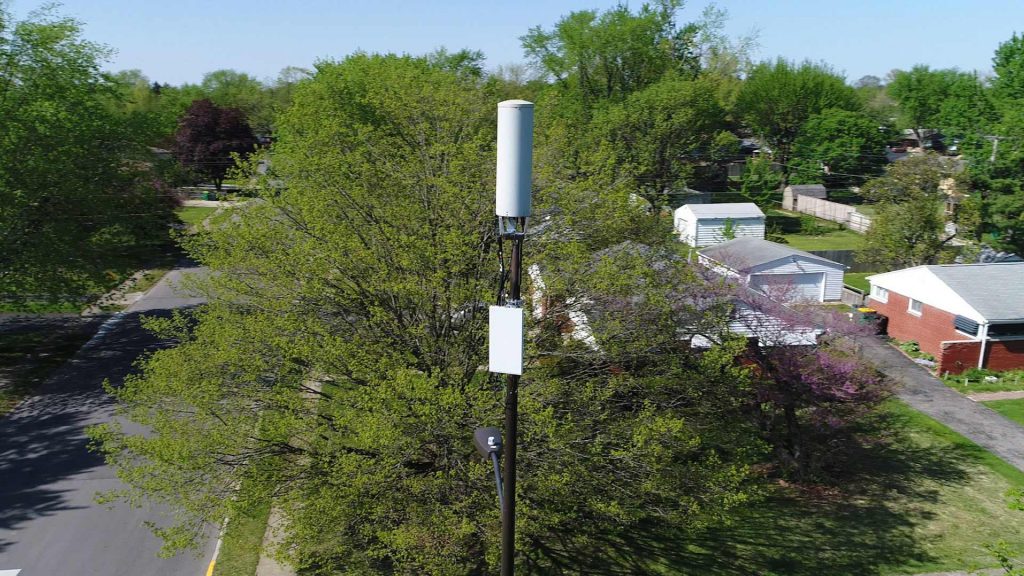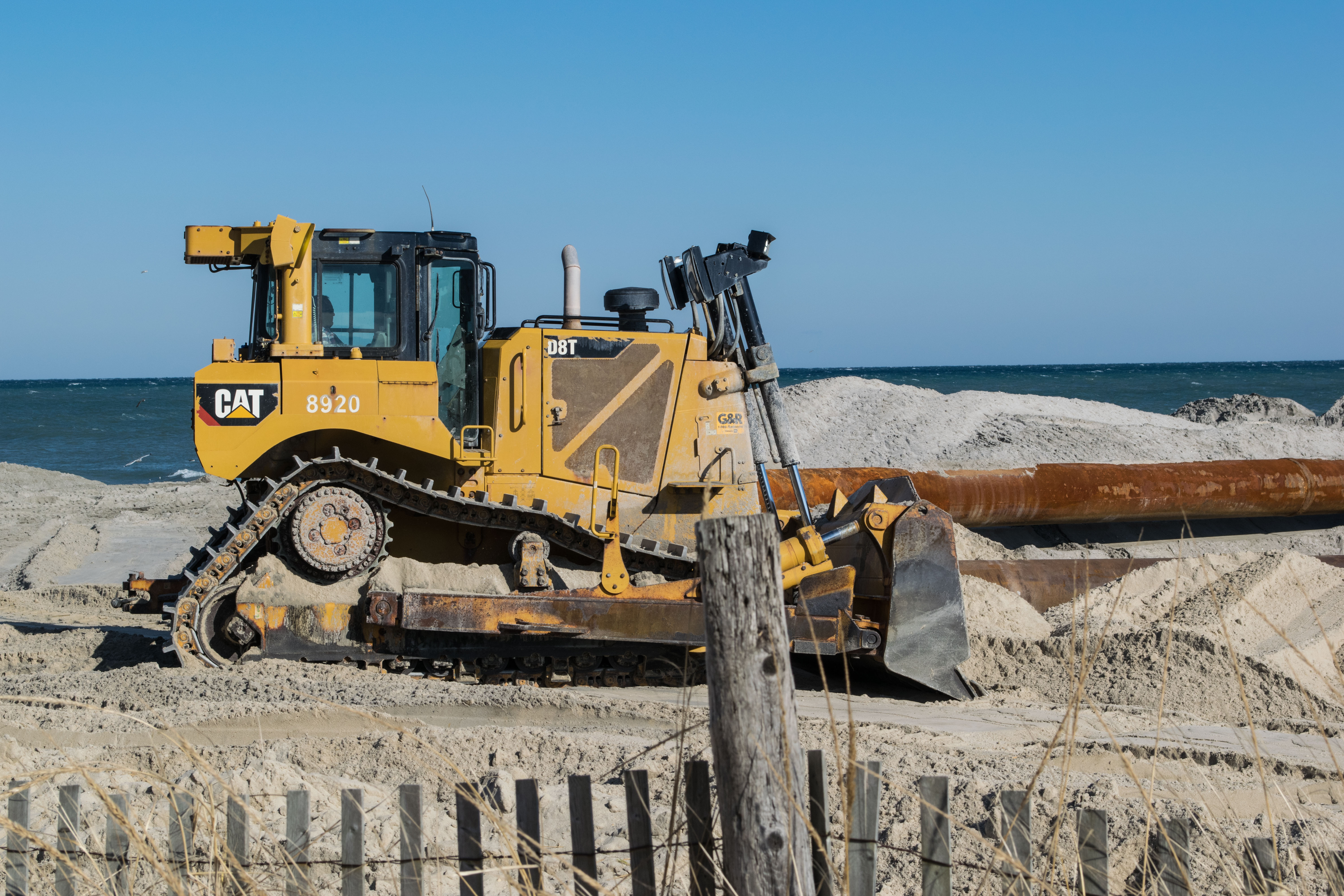Lavallette officials have reached an agreement with Verizon Wireless on the placement of five “small cell” network nodes that will bring increased bandwidth and higher speeds to town, and set the stage for increased competition in the data, video and voice sectors.
The agreement, two years in the making dating back to Verizon’s initial proposal to build the nodes in Lavallette, did not come without controversy. A group of residents have opposed the deployment of 5G infrastructure, with some speaking out against the aesthetic characteristics of the nodes themselves and others worried over health concerns due to radio frequency. Ultimately, federal regulations adopted during the period between Verizon’s initial proposal and a recent deadline limited the scope of the borough’s power to regulate construction of 5G infrastructure, and officials would have faced what they expected to be an unsuccessful multi-million dollar legal battle against the telecom giant if an agreement was not reached.
Under a resolution adopted this week by the council, Verizon agreed to change the location of two of its proposed nodes – essentially miniaturized cellular towers built on monopoles – and pledged to use new materials and designs created over the past two years to integrate poles into the neighborhoods to improve aesthetic characteristics.
“After some back and forth, the borough and Verizon entered into what is known as a tolling agreement,” said Borough Attorney Phillip George. “We suspended the time in which Verizon could file a lawsuit and go ahead and start installing 5G nodes. We went back and forth with some negotiations on three points, and we got a general agreement with Verizon.”
The three points that were the focus of the negotiations were the physical locations of the nodes, providing Lavallette officials with the ability to turn off Verizon’s network equipment in an emergency or if other maintenance work on the borough’s electrical system is required, and providing Lavallette with radiofrequency detection devices in order for local officials to ensure the company is complying with federal regulations. Verizon also pledged compliance with all rules promulgated by the FCC and FAA, including radio altimeter frequencies. Additionally, the company agreed to place no more than 20 nodes, in total, around town.
The new 5G networks being deployed generally use a two-tier system to operate. Traditional cellular antennas with 5G technology are present on existing towers, but a mesh network provides ultra-high speeds at the local level by utilizing millimeter wave technology. These street-level nodes will eventually allow Verizon and other wireless providers to compete with cable companies to offer data and video services that can replaced wired connections. Another major victory for Lavallette in the negotiation with Verizon was a requirement that the company provide enough space for co-location on its monopoles, meaning other wireless providers seeking to offer 5G services in town will be able to use the same poles instead of building new ones.
Some of the locations of the initial five 5G nodes have changed. They are:
- The 2000 block of Grand Central Avenue (Route 35 north)
- 1704 Grand Central Avenue (Route 35 north)
- Corner of Funston Road and Dykman Drive (Originally proposed for 3 Liggett Road).
- 110 Brown Avenue (Originally proposed for 103 Brown Avenue).
- 120 Washington Avenue
Verizon has indicated that they will propose an additional seven small cell nodes. The proposed locations of those nodes have yet to be finalized.
“We have, at least, pushed Verizon into some compromises,” said Councilwoman Joanne Filippone. “It’s going to be aesthetically more pleasing, we have the elimination of that big box that was going to be up there … and we should continue to fight because the industry needs to make it better.”
Filippone said he has never been opposed to the deployment of 5G technology, especially as residents have voiced serious concerns over network reliability and speed in town as Lavallette’s population has grown, but “I don’t think there should be 100 poles all over the place,” she said.
That issue has largely been solved by the co-location aspect of the agreement.
“We’re at a point where the fight has to stop, short of a multi-million dollar lawsuit,” she said. “They wanted to succeed, so they had to work with us on a better plan, and they did.”
Any additional locations where Verizon wished to propose nodes must be made known to the borough, after which officials will have 15 days to consider the application. Each pole Verizon installs has a $270 annual fee, set by law, said George.
The council approved the resolution unanimously, save Councilman David Finter, who abstained due to a conflict.
“Our objections were not merely a negotiation tactic, although that was an end result,” said Mayor Walter LaCicero. “The objections were all legitimate.”

Advertisement

Seaside Heights & Seaside Park
Annual Turkey Dinner to Support Tri-Boro First Aid Squad: Tickets Available

Seaside Heights & Seaside Park
Seaside Heights Italian Festival, Columbus Day Parade to Return Oct. 11-13

Seaside Heights & Seaside Park
Dramatic Water Rescues Occur in Seaside Park As Rip Current Warning Remains in Effect

Ortley Beach & North Beaches
Abandoned Private Island ‘Mansion’ in Barnegat Bay Poised for Demolition








